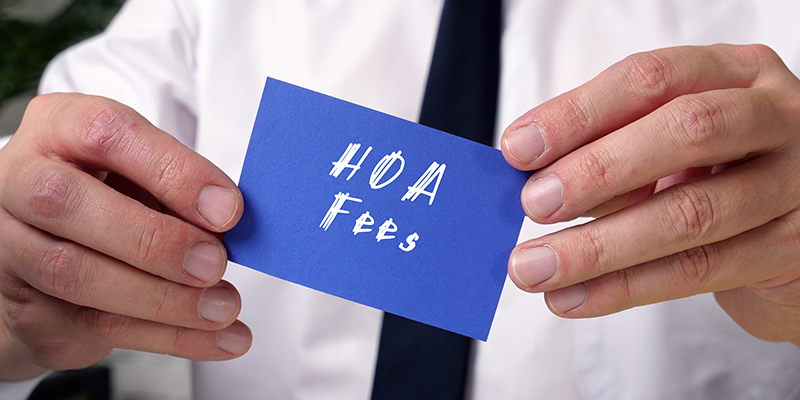Collecting HOA fees can be a straightforward process if you implement the right strategies. You’ll want to consider the payment methods you offer to homeowners. With traditional options like checks and cash, there are limitations. By exploring electronic payments, you can simplify the collection process significantly. But before you decide, it’s essential to understand the pros and cons of each method. What factors should you prioritize to ensure smooth transactions?
Understanding HOA Fee Collection Basics
When it comes to collecting HOA fees, understanding the basics is crucial for smooth operations. You’ll want to ensure your community has a reliable system in place for paying HOA fees.
An HOA online portal can streamline this process, allowing homeowners to make payments easily and securely. By implementing an HOA online payment system, you reduce the chances of late payments and delinquencies. Make sure to communicate the available payment options clearly, so residents know they can pay via credit, debit, or ACH transfers. Additionally, remind them that electronic payments offer timely notifications, helping everyone stay organized.
Emphasizing convenience and reliability will encourage homeowners to utilize the online portal for their fee payments.
Traditional Payment Methods: Pros and Cons
Although traditional payment methods like cash and checks have been used for years, they come with their own set of challenges. Cash can be lost or misplaced, leaving you without a record of payment. Checks require you to manually track payments, increasing the risk of errors or delays.
Furthermore, collecting payments in person can be time-consuming and inconvenient for both you and your homeowners. On the plus side, these methods allow for immediate transaction confirmation without waiting for electronic processing.
However, handling cash and checks can create additional administrative work, like reconciling payments and issuing receipts. Ultimately, while traditional methods are familiar, they can complicate the collection process and lead to potential misunderstandings.
The Shift to Electronic Payments
As homeowners increasingly seek convenience and efficiency in managing their finances, the shift to electronic payments has become essential for homeowners’ associations (HOAs).
By adopting electronic payment methods, you’ll streamline the collection process, making it easier for members to pay their dues on time. Gone are the days of worrying about lost checks or cash; electronic transactions provide immediate digital receipts and eliminate delays. Plus, you’ll notice environmental benefits with less paper and postage used. Offering flexibility through various payment options like credit and debit cards or ACH transfers caters to your community’s preferences.
Timely reminders can also help prevent late fees, ensuring that your HOA maintains a steady cash flow. Embracing this digital shift is a win-win for everyone involved.
Exploring Different Electronic Payment Options
With electronic payments gaining popularity, it’s important to explore the various options available for homeowners’ associations (HOAs).
You can choose from credit and debit cards, which provide secure online transactions, or ACH payments that allow direct bank transfers. Credit cards offer flexibility, while debit cards often come without additional fees. ACH payments facilitate recurring dues, ensuring timely collections without hassle. Each method has its benefits, like instant transaction confirmations and reduced risk of lost payments.
Plus, these options help you go green by cutting down on paper use. By offering a variety of electronic payment methods, you’ll cater to homeowners’ preferences, making it easier for them to stay current with their dues and reducing delinquency rates.
Setting Up Online Payment Platforms
Setting up online payment platforms can streamline your HOA’s fee collection process significantly. Start by researching various options like banks, payment service providers, and a custom HOA online portal.
Choose a platform that offers security features to protect member information while ensuring easy integration for online collections. Consider the flexibility of payment methods, such as credit cards, debit cards, and ACH transfers, to accommodate your residents’ preferences.
It’s essential to communicate any associated fees transparently, so homeowners know what to expect. Automatic payment features and reminders can help minimize late fees and boost timely collections.
The Role of HOA Management Software
HOA management software plays a crucial role in modernizing fee collection processes, making it easier for both homeowners and associations to stay on track. This software streamlines payment tracking, automates reminders, and centralizes financial records, allowing you to manage dues efficiently.
With features like online payment integration, you can offer residents various payment options, enhancing convenience. The software also provides secure access to member information, ensuring data protection. By reducing paperwork and minimizing errors, it helps maintain transparency and fosters trust within the community. Additionally, automated reporting tools allow you to monitor payment trends and make informed decisions.
Embracing HOA management software significantly improves the overall efficiency of fee collection for everyone involved.
Communicating Payment Options to Homeowners
Effective communication about payment options is vital for ensuring homeowners understand and can easily use the methods available for fee collection.
Start by clearly outlining all payment methods you offer, including credit cards, debit cards, and ACH transfers. Use simple language and provide examples to illustrate how each option works. Consider hosting an informational meeting or sending out a detailed email to explain these choices. Make sure to highlight the benefits of electronic payments, such as security and convenience. Don’t forget to inform homeowners about any potential fees associated with each option.
Lastly, encourage questions and provide a contact person for further assistance, fostering a positive relationship and ensuring everyone feels comfortable with their payment choices.
Managing Bank Fees and Transaction Costs
While managing bank fees and transaction costs might seem daunting, it’s crucial for maintaining the financial health of your HOA.
Start by evaluating the different payment methods available. Electronic payments, like ACH and eChecks, often come with lower fees compared to credit and debit cards. Inform homeowners about any associated costs, fostering transparency and trust.
Select a bank that offers favorable terms and low transaction fees, as this can significantly impact your budget. Also, consider using HOA management software that simplifies fee collection and minimizes costs.
Ensuring Data Security in Electronic Transactions
As you explore electronic payment methods, ensuring the security of transactions becomes a top priority. Start by selecting platforms with robust encryption and compliance with data protection regulations.
Verify that the payment service providers you choose have a solid reputation for safeguarding sensitive information. Encourage members to use secure passwords and enable two-factor authentication where possible.
Regularly communicate with homeowners about security protocols and best practices to keep their data safe. Additionally, monitor transactions for any suspicious activity, and promptly address any breaches.
Encouraging Timely Payments and Reducing Delinquencies
To ensure timely payments and reduce delinquencies, it’s crucial to implement a proactive approach that keeps homeowners engaged and informed. Start by offering multiple electronic payment options, like credit cards, debit cards, and ACH transfers. This flexibility makes it easier for homeowners to pay their dues on time.
Consider sending regular reminders before deadlines, highlighting the benefits of prompt payments. You might also introduce incentives for early payments, such as discounts or recognition in community newsletters.
Transparency about any associated fees is vital, too. By fostering open communication and streamlining the payment process, you’ll build trust and encourage timely payments, ultimately creating a more financially stable community.
Conclusion
In conclusion, collecting HOA fees effectively requires a blend of traditional and electronic payment methods. By setting up an online payment portal and clearly communicating options to homeowners, you can simplify the process and encourage timely payments. Remember to manage transaction costs and prioritize data security to build trust within your community. With these strategies in place, you can foster a sense of responsibility and reduce delinquencies, ensuring the smooth operation of your HOA.






